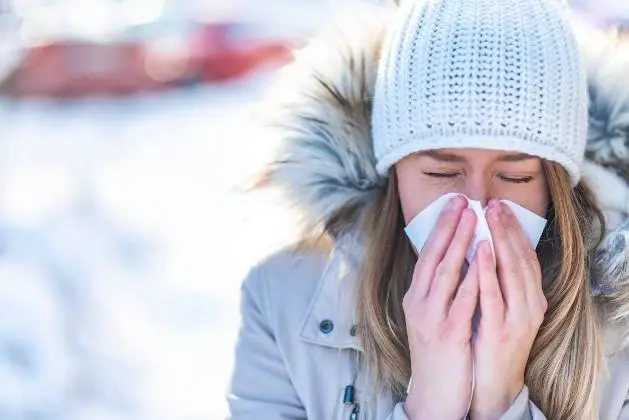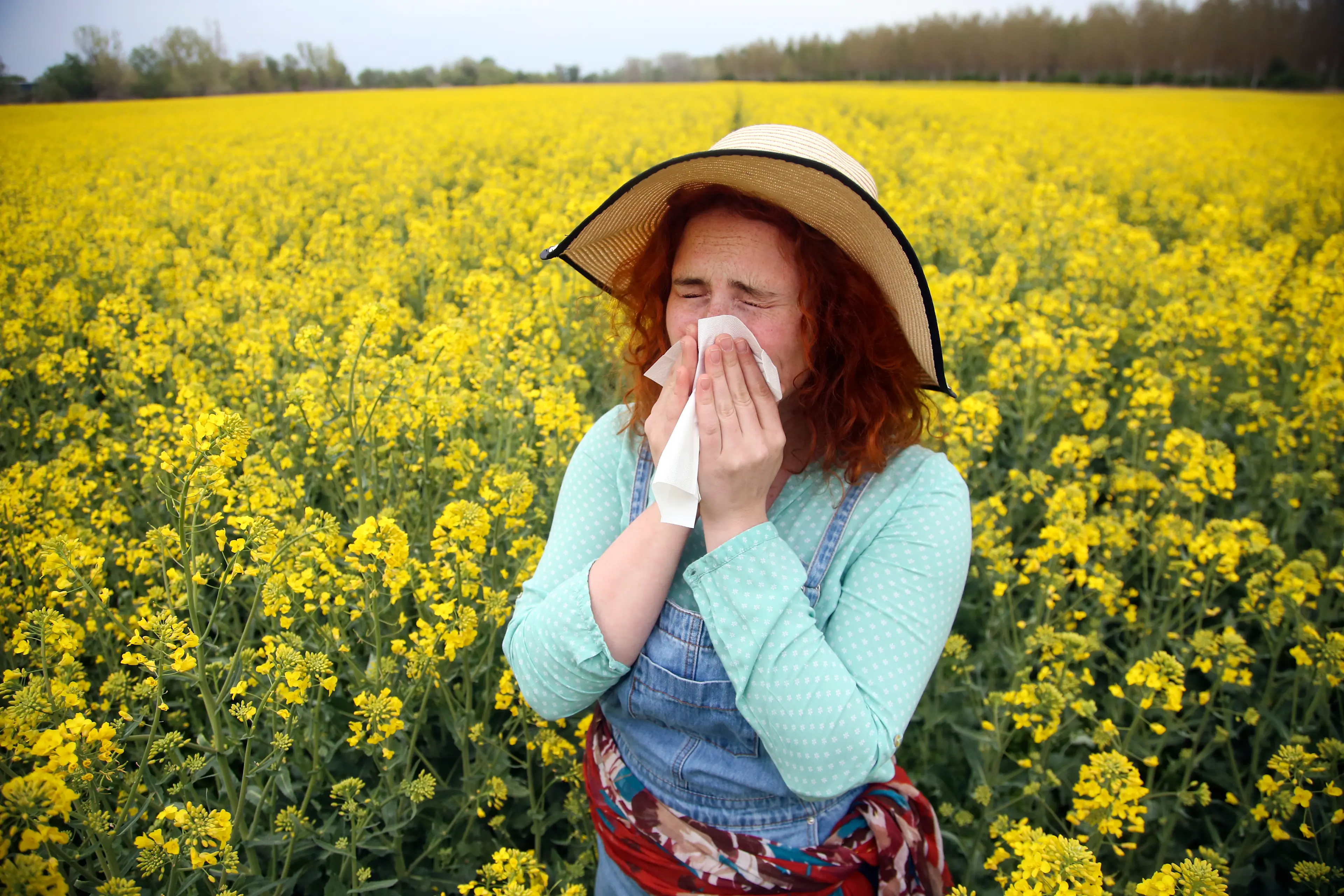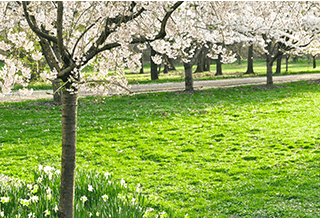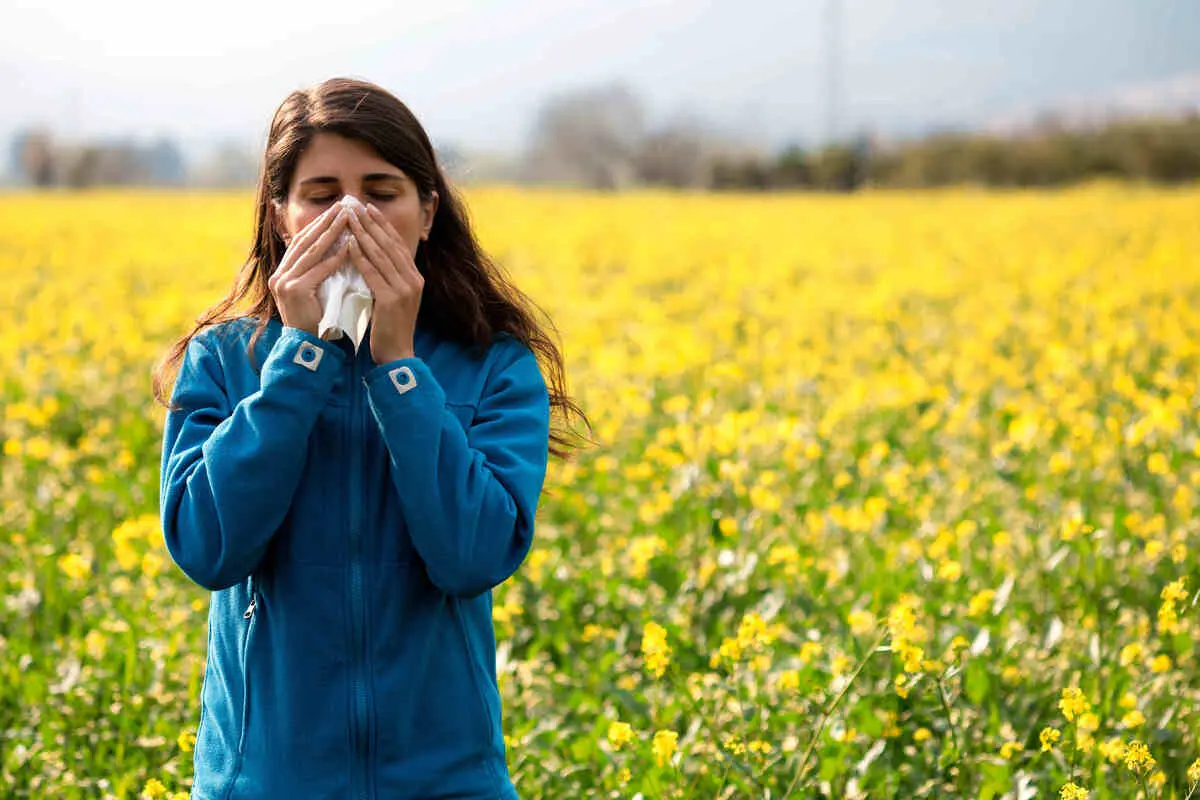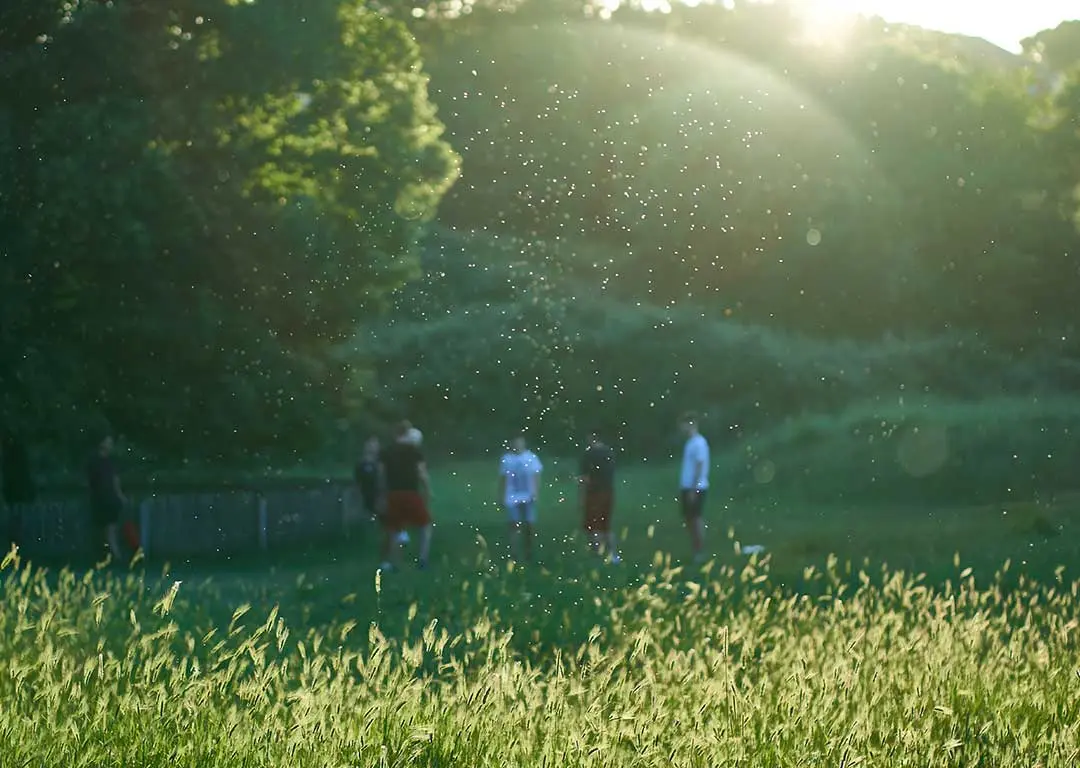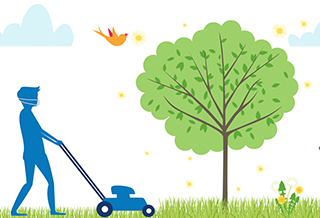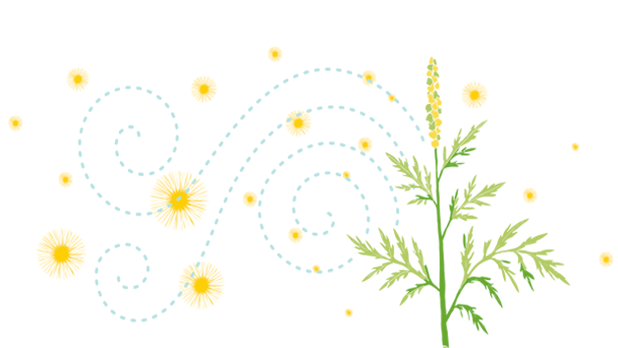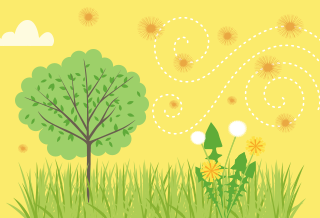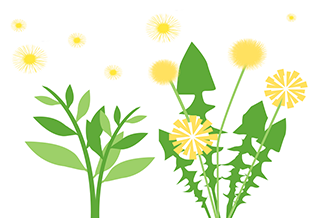Outdoor Allergy Symptoms
No two kids have the same symptoms for outdoor allergies, but here are some common ones: 1
Runny nose
Sneezing
Itchy, watery eyes
Allergic skin itch
If your child has one or more of these symptoms while playing outside, they may have allergies.
Common Types of Outdoor Allergies in Kids
Kids playing outdoors in Canada can have different types of outdoor allergies.
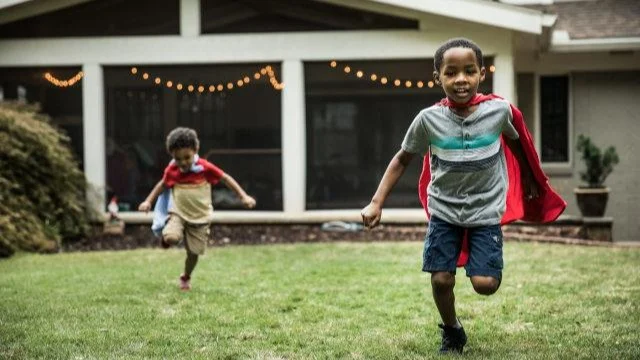
1. Grass Pollen Allergy
Most grass pollen is in the air in spring and summer.2 If your kids like being outside when the weather is warm, there are some things you can do to help.
First, keep the grass short. People and pets can easily carry pollen from grass into the house. So, when kids come in, have them shower and change their clothes.3
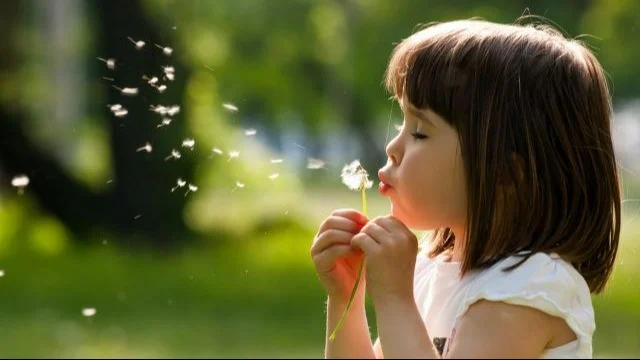
3. Weed Pollen Allergy
As hard as you try to keep weeds at bay, a few will always pop up, especially in the summer and fall.2 So try to keep your yard weed-free and be on high alert when your kids play in areas with unkempt gardens.
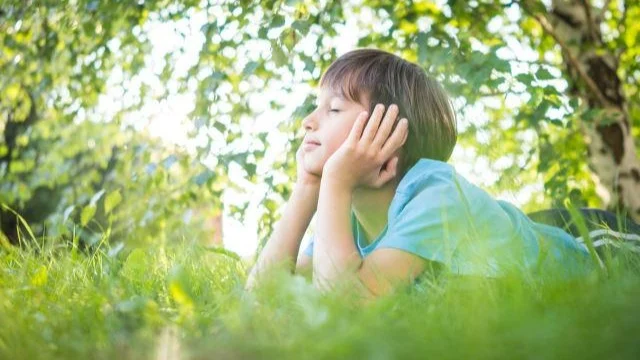
2. Tree Pollen Allergy
Trees pollinate in late winter and early spring.2 They produce light, dry pollen that can be carried by the wind for miles. Be wary of this when your children are eager to get outside in spring. They may be allergic to more than one type of tree pollen and it’s not always the trees in your yard.
Keep children inside on windy days, and don’t put your clothes outside on a line to dry.5 That may expose the kids to tree pollen even indoors.

4. Allergies at School
Take a few minutes to make teachers and caretakers aware of your child’s allergies. That way, they can watch for symptoms and take precautions. For example, they might keep the classroom windows closed or your child inside on a windy day.4

Help your Kids to Manage Outdoor Allergies
While Canada is known for its beautiful land, kids with outdoor allergies can’t always enjoy it. There are things parents and kids can do to help avoid allergy triggers.
1. Check the Weather
Many weather websites and apps in Canada provide daily pollen forecasts, so you and your kids can stay prepared when the pollen count is high. If high pollen counts are forecasted, minimize outdoor activity in the early morning when pollen counts are highest.4
2. Talk to Your Kids
Seasonal allergies may be something your child will deal with their whole lives. The more information they have, the better. Explain to your kids what an allergy is and why it makes them uncomfortable.
Allergies develop when the body’s immune system mistakes something harmless for an intruder or allergen. In response, it releases an army of chemicals, known as histamines, to fight off the intruder. Unfortunately, that army leads to allergy symptoms like sneezing, runny nose or itchy eyes.5
Seasonal allergies can be especially tricky because they are triggered by pollen4, which sticks to everything from clothes to mucus membranes. It becomes hard to avoid seasonal allergens because they are everywhere. The key is to teach your kid how to reduce exposure to pollen, and how you can treat their symptoms when exposed.1
Kids also need to understand what time of year they will most likely encounter allergens. This will help them prepare for them.
Medicine to Relieve Allergy Symptoms in Kids
As hard as you try, avoiding allergens won’t always be possible; that is why treatment options to relieve allergy symptoms are available such as REACTINE® CHILDREN’S LIQUID (for kids 2-12) and REACTINE FAST MELT® JUNIORS (for kids aged 6+). They contain cetirizine hydrochloride, which works on allergy symptoms quickly by blocking histamine, the substance that your body makes during an allergic reaction. Both medications provide long-lasting relief for up to 24 hours to help your kids enjoy playing outside again.
If you are unsure of your child’s symptoms or which OTC medication to give them, always seek advice from a doctor or healthcare professional. To be sure any OTC medication is right for your child, always read and follow the label.
